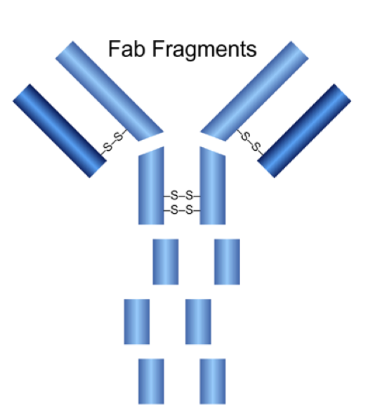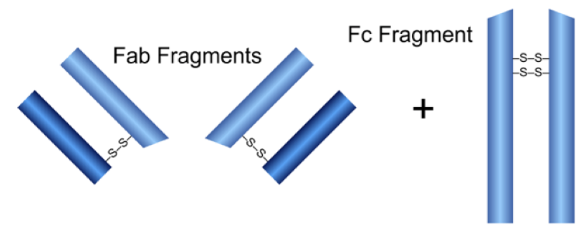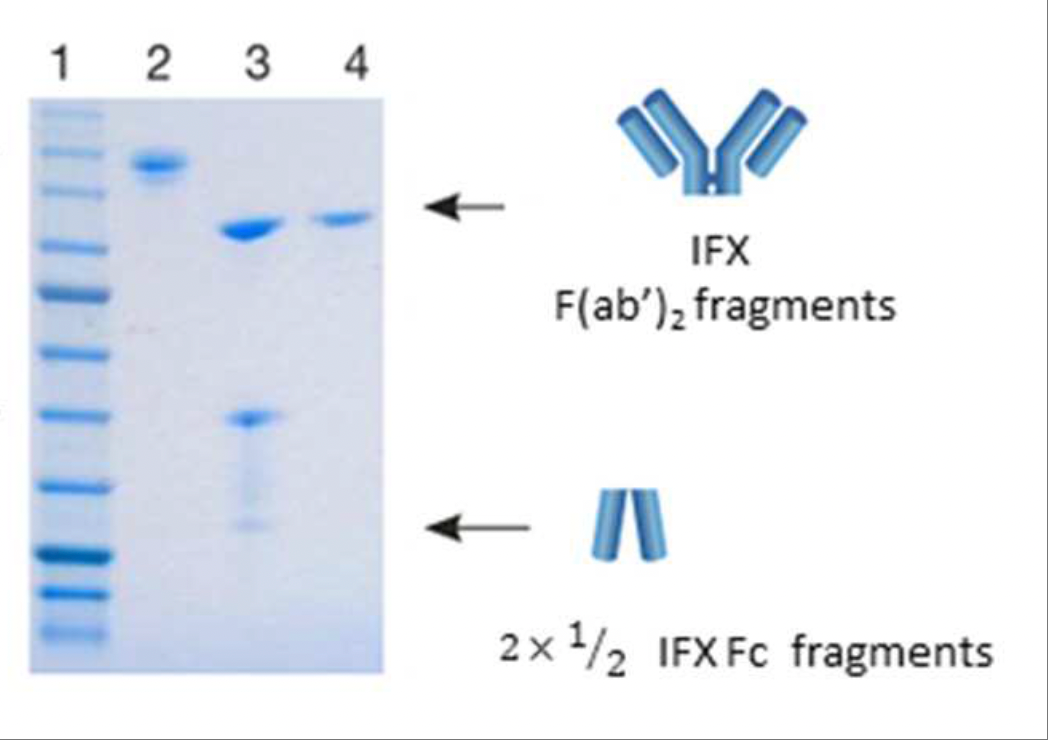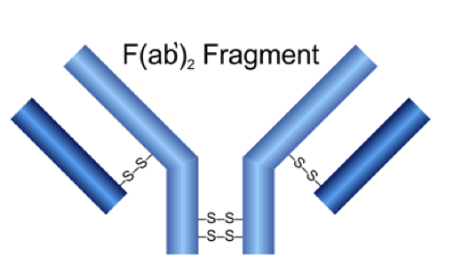Cat. No.
MABL-250
Application
antagonist, immunotherapy, RIA, ELISA
Isotype
Engineer antibody
Species Reactivity
Species independent
Clone No.
6B5
From
Recombinant Antibody
Specificity
This antibody binds phencyclidine (PCP/ angel dust) and also has binding affinity for other aryl cyclohexylamines like tenocyclidine (TCP) and PCE. PCP is a dissociative hallucinogenic drug used for its mind-altering effects. PCP may cause hallucinations, distorted perceptions of sounds, and violent behavior. PCP can produce a dose-dependent psychosis that resembles schizophrenia with behavior described as extremely agitated, bizarre, unpredictable and paranoid. It is a dopamine receptor agonist and an antagonist at the N-methyl-d-aspartate (NMDA) subtype of glutamate receptors. It has anticholinergic properties through blockade of ion channels in acetylcholine receptors. It has been used in some countries as an anti-parkinsonian agent.
Alternative Names
PCP; CI-395; Angel dust; PCE; TCP; phenyl cyclohexyl piperidine; aryl cyclohexylamine; tenocyclidine; 1-(1-phenylcyclohexyl)piperidine; CAS: 77-10-1; CHEBI:8058; mAb6B5; ch6B5; ch-mAb6B5
UniProt
Immunogen
The original antibody was generated from a mouse immunized with a phencyclidine analogue hapten 5-[N-(1′phenylcyclohexyl)amino]pentanoic acid (PCHAP) conjugated to bovine serum albumin.
Application Notes
The binding characterization of this antibody to 3[H]PCP was done using radioimmunoassay. The original IgG1 version of this antibody binds phencyclidine with an affinity of Kd=
1.3 nM. (PMID: 9618414). This antibody was useful in reversing PCP-induced central nervous system toxicity in laboratory animals. The Fab version of this antibody induced antagonism of behavioral effects of repeated intravenous PCP challenges. The Fab completely reversed all PCP-induced locomotor effects in a dose dependent manner. It also completely reversed the locomotor effects induced by two other structurally related potent analogs of PCP: 1-[1-(2-thienyl)cyclohexyl]piperidine and N-ethyl-1- phenylcyclohexylamine (PMID: 9618414). In a rat model for human acute PCP overdose, the antigen- binding fragment (Fab) of mAb6B5 causes a rapid and effective redistribution of PCP out of the brain (PMID:8768723). This redistribution also produces a rapid recovery from the behavioral toxicity produced by PCP, TCP and PCE in rats (PMID: 8768723; 9618414). Preclinical studies in rats show that mAb6B5 can reverse or reduce the in vivo pharmacological effects of PCP and other potent aryl cyclohexylamines such as TCP. When tested in a rat model based on human chronic PCP use, a single low dose of mAb6B5 provides long- term protection against the adverse effects of PCP and significantly improves the general health status of the animals. Single 1 gm dose of mAb6B5 IgG has the capability of reducing the toxic effects of 1.29gm/day of PCP for 6-8 weeks (PMID: 12829731). The binding characterization of chimeric version of this antibody was done using ELISA (PMID: 18068094). This antibody can be used as an immunotherapeutic agent for PCP and PCP-like drug abuse.
Antibody First Published
Hardin et al. Pharmacodynamics of a monoclonal antiphencyclidine Fab with broad selectivity for phencyclidine-like drugs. J Pharmacol Exp Ther. 1998 Jun;285(3):1113-22.
PMID:9618414
Note on publication
Describes the generation of the Fab fragment and tests its usefulness in the treatment of drug intoxication.
Size
100 μg Purified antibody.
Concentration
1 mg/ml.
Purification
Protein A affinity purified
Buffer
PBS with 0.02% Proclin 300.
Storage Recommendation
Store at 4⁰C for up to 3 months. For longer storage, aliquot and store at - 20⁰C.





